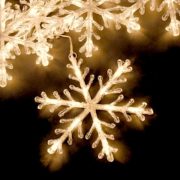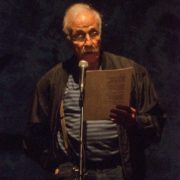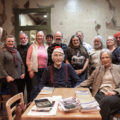The divine in every molecule
Hello friends, the traditions of Christian faith often focus on the divinity of Christ. At Christmas we ought to be reminded that he was born human and humbly in a stable, to consider that our own common humanity binds us together in universal truth. As my poem suggests, the idea of Jesus as a “ruler of all” was a later development expressed in religious teachings, reflected in art that adorns so many places of worship. We should first seek the divine in “every loving deed and beauty,” as Jesus did in his ministry, and as have many teachers. May your holidays be filled with such simple gifts and good cheer. Thanks, Gene
A Heretic’s Christmas
“For unto us a child is born…and his name
shall be called the Mighty God, the everlasting Father.”
(Handel’s “Messiah”)
I respect the Christmas traditions
of song, music and mythic stories,
but the early church gradually turned
Jesus into God of the cosmos,
a competitive power to please
the Constantines in us all.
I suspect that many 21st century Christians
who love the teachings and examples
of the wandering Galilean Jew,
doubt the “ruler of all”
mosaics in church ceilings
and the controlling ways of high clergy.
Should all that be subsumed without critique
under “unchangeable faith”?
Should I blame or praise the mystics
of all religions, modern centuries
of science and philosophy for my heretical views?
Newton hid his Arianism for a chair at Cambridge.
Spinoza was excommunicated from the synagogue for pantheism.
Bruno was burned in the Campo dei Fiori.
Faith became a gated community,
a closed tribe of the righteous.
Meister Eckhart, Buddha and Tao masters
led me toward agnostic pantheism,
the divine in every molecule,
in every loving deed and beauty,
in Jesus, Rumi and Dorothy Day,
as well as gardens, cats, birds and trees
along the Oconee River.







